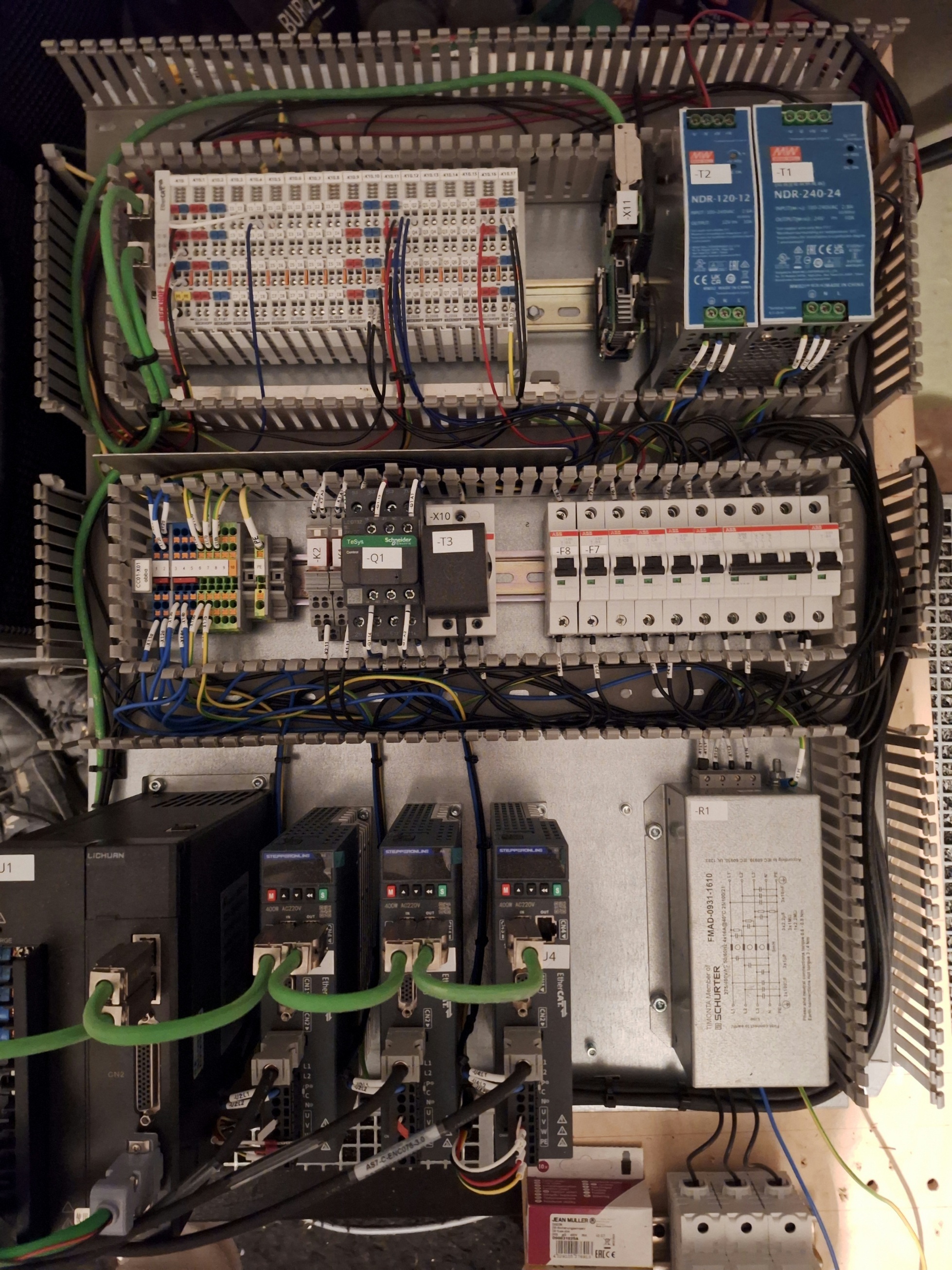Search Results (Searched for: raspberry)
- nichtAlex
- nichtAlex
27 Feb 2026 05:05
Replied by nichtAlex on topic Umstieg von LinuxCNC + Mesa auf EtherCAT (Leadshine EL8 / Beckhoff) – Erfahrunge
Umstieg von LinuxCNC + Mesa auf EtherCAT (Leadshine EL8 / Beckhoff) – Erfahrunge
Category: Deutsch
- nichtAlex
- nichtAlex
26 Feb 2026 05:17
Replied by nichtAlex on topic Umstieg von LinuxCNC + Mesa auf EtherCAT (Leadshine EL8 / Beckhoff) – Erfahrunge
Umstieg von LinuxCNC + Mesa auf EtherCAT (Leadshine EL8 / Beckhoff) – Erfahrunge
Category: Deutsch
- masawee
- masawee
21 Feb 2026 13:04
Replied by masawee on topic Linuxcnc 2.9.2 and 2.93 images for Raspberry Pi 4b & 5
Linuxcnc 2.9.2 and 2.93 images for Raspberry Pi 4b & 5
Category: Installing LinuxCNC
- MRx
- MRx
12 Feb 2026 15:52 - 12 Feb 2026 15:54
- krille
- krille
10 Feb 2026 13:35
Replied by krille on topic Raspberry pi 5 freze
Raspberry pi 5 freze
Category: General LinuxCNC Questions
- Massimo148
- Massimo148
06 Feb 2026 18:23 - 06 Feb 2026 22:59
Retrofitting an old industrial CNC Plasma table was created by Massimo148
Retrofitting an old industrial CNC Plasma table
Category: Plasmac
- unknown
- unknown
05 Feb 2026 11:44
Replied by unknown on topic Linuxcnc & the Raspberry Pi (4 & 5) Official Images Only!!!
Linuxcnc & the Raspberry Pi (4 & 5) Official Images Only!!!
Category: Installing LinuxCNC
- fenton06
- fenton06
05 Feb 2026 04:37 - 05 Feb 2026 04:38
Replied by fenton06 on topic Linuxcnc & the Raspberry Pi (4 & 5) Official Images Only!!!
Linuxcnc & the Raspberry Pi (4 & 5) Official Images Only!!!
Category: Installing LinuxCNC
- tar_san
- tar_san
05 Feb 2026 02:46
Replied by tar_san on topic initramfs-tools error (sudo apt upgrade)
initramfs-tools error (sudo apt upgrade)
Category: Installing LinuxCNC
- tommylight

02 Feb 2026 18:23
Replied by tommylight on topic Raspberry pi 5 freze
Raspberry pi 5 freze
Category: General LinuxCNC Questions
- krille
- krille
02 Feb 2026 18:08
Raspberry pi 5 freze was created by krille
Raspberry pi 5 freze
Category: General LinuxCNC Questions
- nicklego

31 Jan 2026 21:27 - 01 Feb 2026 18:45
Maxnc15CL Motor timing help was created by nicklego
Maxnc15CL Motor timing help
Category: General LinuxCNC Questions
- RNZ
- RNZ
30 Jan 2026 22:23
Replied by RNZ on topic Linuxcnc & the Raspberry Pi (4 & 5) Official Images Only!!!
Linuxcnc & the Raspberry Pi (4 & 5) Official Images Only!!!
Category: Installing LinuxCNC
- meister
- meister
30 Jan 2026 17:31
Remote - Camera - Touch - MPG was created by meister
Remote - Camera - Touch - MPG
Category: Other User Interfaces
- amanker
- amanker
30 Jan 2026 14:11
How to update QtDragon_HD to latest version? was created by amanker
How to update QtDragon_HD to latest version?
Category: Qtvcp
Time to create page: 0.711 seconds

